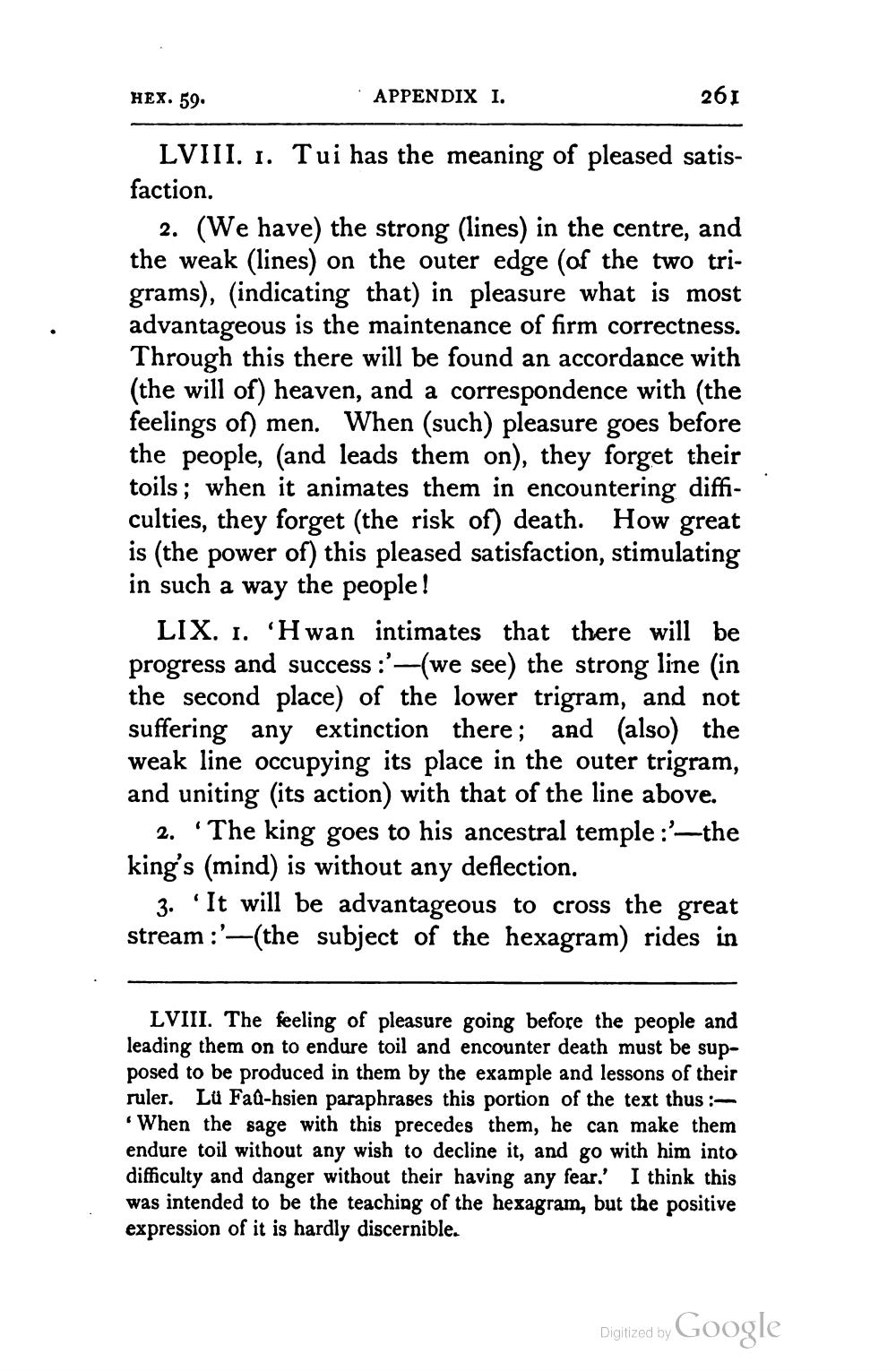________________
HEX. 59.
APPENDIX I.
261
LVIII. 1. Tui has the meaning of pleased satisfaction.
2. (We have) the strong (lines) in the centre, and the weak (lines) on the outer edge (of the two trigrams), (indicating that) in pleasure what is most advantageous is the maintenance of firm correctness. Through this there will be found an accordance with (the will of) heaven, and a correspondence with (the feelings of) men. When (such) pleasure goes before the people, (and leads them on), they forget their toils; when it animates them in encountering difficulties, they forget (the risk of) death. How great is (the power of) this pleased satisfaction, stimulating in such a way the people!
LIX. I. 'Hwan intimates that there will be progress and success:'-(we see) the strong line (in the second place) of the lower trigram, and not suffering any extinction there; and (also) the weak line occupying its place in the outer trigram, and uniting (its action) with that of the line above.
2. 'The king goes to his ancestral temple :'-the king's (mind) is without any deflection.
"
3. It will be advantageous to cross the great stream:'-(the subject of the hexagram) rides in
LVIII. The feeling of pleasure going before the people and leading them on to endure toil and encounter death must be supposed to be produced in them by the example and lessons of their ruler. Lu Fau-hsien paraphrases this portion of the text thus:'When the sage with this precedes them, he can make them endure toil without any wish to decline it, and go with him into difficulty and danger without their having any fear.' I think this was intended to be the teaching of the hexagram, but the positive expression of it is hardly discernible.
Digitized by Google




